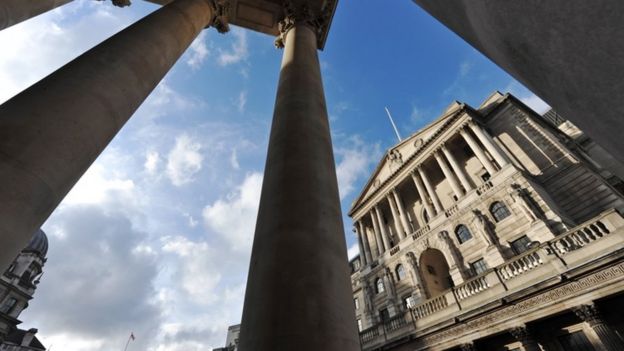The global economy could grow at its slowest rate since 2009 this year due to the coronavirus outbreak, the Organisation for Economic Cooperation and Development (OECD) has warned, reports BBC’s Business Correspondent, Theo Leggett.
1.5% Dip in Growth
The influential think tank has forecast growth of just 2.4% in 2020, down from 2.9% in November.
But it said a longer “more intensive” outbreak could halve growth to 1.5%.
It came after the Bank of England vowed to help stabilise markets, which suffered steep losses last week.
Coronavirus is already forcing businesses to suspend operations in China and elsewhere as officials try to contain its spread.
Recovery in 2121?
The OECD forecast the global economy could recover to 3.3% growth in 2021, assuming the epidemic peaked in China in the first quarter of this year and other outbreaks proved mild and contained.
But it said the picture would be much worse if the virus spread throughout Asia, Europe and North America.
Several Countries into Recession
“The main message from this downside scenario is that it would put many countries into a recession, which is why we are urging measures to be taken in the affected areas as quickly as possible,” said Laurence Boone, the OECD’s chief economist.
Stock Market Fall
Last week saw major stock markets suffer their worst weekly performance since the 2008 financial crisis, with $1.5 trillion being wiped off the value of global shares. Investors now hope central banks around the world will work in unison to support financial markets as the deadly virus spreads.

Central Banks To the Rescue?
On Monday, the Bank of England said it continued to monitor developments and was assessing its potential impact on the global and UK economies and financial systems.
“The Bank is working closely with HM Treasury and the FCA (Financial Conduct Authority) – as well as our international partners – to ensure all necessary steps are taken to protect financial and monetary stability,” a spokesman said.
Stock Up With Hope
Japan’s central bank and the US Federal Reserve have also said they are prepared to intervene to stop more big falls on global stock markets.
Buoyed by the news, US stocks opened higher on Monday, with the Dow Jones Industrial Average and S&P 500 indexes both gaining 0.7%.
London’s FTSE 100 index closed 1.2% higher, while China’s Shanghai Composite index gained 3.2% and Japan’s benchmark index, the Nikkei 225, climbed 1%.
On Monday, the privately-run Caixin/Markit Manufacturing Purchasing Managers’ Index showed the fastest rate of contraction in China’s factory activity since the survey was launched in 2004. That followed the release on Saturday of equally weak official numbers.
Both sets of data come after employers across the country were ordered to remain closed after the annual Chinese New Year holiday as part of attempts by authorities to stem the spread of the virus.
Worse Than 2008 Recession?
The falls, which were even worse than the slump seen during the 2008 global financial crisis, highlighted the outbreak’s huge impact on the world’s second-largest economy.
There are limits to what traditional monetary policy can actually achieve if the coronavirus outbreak continues to spread.
If supply chains are disrupted, and factories have to shut down, interest rate cuts are unlikely to help very much. Likewise, if people don’t want to go to the shops, eat in restaurants, travel on planes or stay in hotels, cheap credit isn’t going to make a lot of difference. And in many countries, interest rates are in any case already low.
Psychological Prop To Recession?
But the prospect of a rate cut does at least provide a psychological prop – and reduces the risk of the falls on the markets turning into a rout.
The next step may be to look at ways of encouraging commercial banks to provide targeted support – for companies that are struggling with repayments on loans because their business has been affected by the outbreak, for example.
That may be the kind of life-support that’s really needed to keep firms operating until the worst of the crisis is over.
Governments To Step-in?
The OECD said governments would have to step in if the virus worsened, providing extra support for their health systems and emergency loans for hard hit industries.
“A G20 coordinated health, fiscal and monetary policy response would not only send a strong confidence message but also multiply the effect of national actions,” Mr Boone added.
Over the weekend senior officials in President Donald Trump’s administration also tried to soothe concerns about the impact of the outbreak, highlighting the US economy’s underlying strength.
US Vice-President Mike Pence, who is leading the administration’s response to the coronavirus, said that the stock market “will come back”, adding that “the fundamentals of this economy are strong”.
Did you subscribe to our daily newsletter?
It’s Free! Click here to Subscribe!
Source: BBC
















